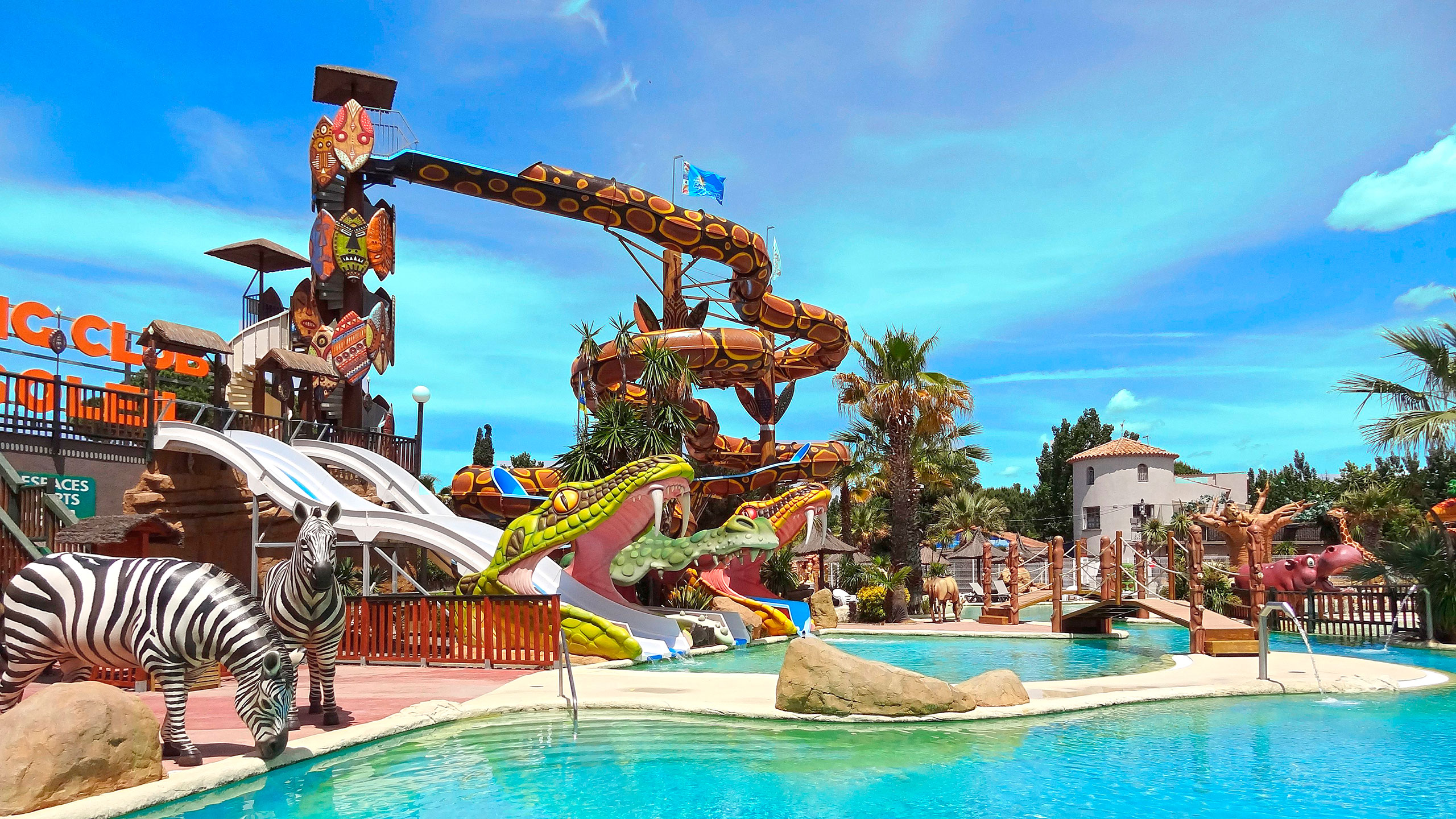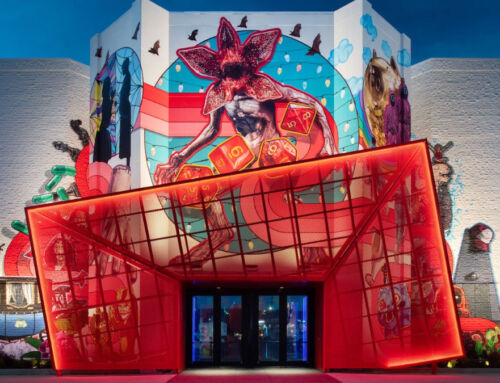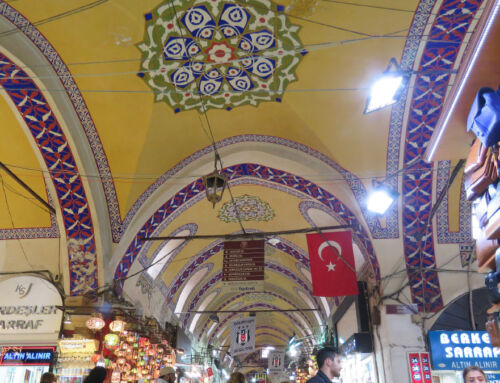On this occasion, our interviewee is an expert with more than 30 years of experience in the camping sector, of which he knows the ins and outs at a national and European level. He started out as a journalist specialising in an industry in which he has always participated. He later founded the specialised publication Campireport, which he has headed for 15 years as director and editor. Here he shares with us a complete overview of the state of a hospitality industry that is experiencing boom times.

Amusement Logic: Could you tell us about your beginnings and how you came to the camping sector?
Agustí Valls: I started working as a journalist in the camping sector in 1991. A technical-press publishing house based in Madrid commissioned me to develop new magazine projects and I created CAMPITUR, which was the first professional publication in the sector in Spain. It was printed on paper and published bimonthly. Over the years, I decided to work on my own and in 2007 I created CAMPIREPORT, the professional newsletter that I still edit and manage today. I became involved in the camping sector because I knew it as a user and I have always liked it as a tourist accommodation option. I have been camping with my family for many years and I had my own caravan. Nowadays I still stay, in bungalows.
A.L.: What is Campireport and how did it come about?
A.V.: CAMPIREPORT is a newsletter whose aim is to provide useful information to campsite professionals in their daily activities. From the beginning, it was designed as an online medium, as it is the most effective channel for transmitting this information. It reaches owners and managers of campsites all over Spain, as well as suppliers of the sector and other professionals linked to it. CAMPIREPORT has been for me the culmination of the activity I started in CAMPITUR 31 years ago.
A.L.: As an expert, could you give us a portrait of the camping sector in Spain?
A.V.: The camping sector in Spain, although it does not have the same size as the hotel sector in terms of number of establishments, is gaining specific weight, year after year, in terms of customers and overnight stays. In fact, in some autonomous communities it is already the first option for tourist accommodation. There are currently some 1,250 campsites in Spain, a much lower figure than in countries such as France, which has more than 8,000, but among them are some of the best in Europe, concentrated mainly on the Mediterranean coast.
In recent years, the sector has been evolving towards the resort concept, with accommodation and leisure facilities of the highest standard. With the pandemic, many people have come to value nature, the outdoors and large spaces, just what campsites offer, which are gaining new customers in the domestic market. All this has attracted the interest of investment groups, some of them linked to the hotel sector, accelerating the buying and selling of campsites. In any case, even today the sector is still mainly made up of small family businesses and the presence of chains and groups, although growing considerably, is still a minority.
At the association level, the main organisation is the Spanish Federation of Campsite Entrepreneurs (FEEC), which brings together most of the territorial associations. Among the latter, the most important within the sector are the Catalan Federation of Campsites and the Federation of Campsites of the Valencian Community.
A.L.: We would also like to know the similarities and differences between the camping sector in our neighbours, France and Portugal, and that of Spain.
A.V.: Apart from the different size of the sector in these countries, in terms of the number of establishments, the evolution is the same. France has always set the standard in the transformation of the camping sector. It was a pioneer in the introduction of bungalows and later also in the conversion of traditional swimming pools into aquatic leisure areas. It is also the main market for chains and groups, which started to be set up there many years ago and now have a significant presence.
A.L.: Let’s talk now about the public of Spanish campsites: To what extent is it local or international, groups of different socio-economic levels and its evolution over the last decades?
A.V.: The clientele of Spanish campsites varies according to geographical areas. On the Mediterranean coast, foreign clientele has a great specific weight, especially French, German, British and Dutch. In other areas, especially inland and in the mountains, the national clientele is in the majority. In terms of socio-economic level, there is great diversity. Today, campsites accommodate families who come with their own tents or caravans, families who travel with high-end motorhomes, and families who rent bungalows or mobile homes. The price range is very diverse, adapting to all budgets. In recent years, trends such as glamping have attracted new customers who have never been to a campsite before.
A.L.: Which regions of the country have the most of this type of accommodation offer?
A.V.: Catalonia is clearly the main region in terms of campsites, in terms of number of establishments, size, overnight stays and level of quality. It is followed by the Valencian Community and Andalusia. There are also campsites in the other autonomous communities, but in smaller numbers.
A.L.: What role do Spanish campsites give to leisure and entertainment facilities and which are the most common?
A.V.: The importance of leisure facilities in campsites is increasing, to the point that in many cases they are a differential factor in attracting customers. Swimming pools and aquatic areas are a good example. Nowadays, a campsite that wants to be competitive in the sector must have modern aquatic areas, with all kinds of leisure equipment. The classic rectangular pools of yesteryear no longer work, as customers expect more. In addition to aquatic areas, campsites are also improving their playgrounds and sports areas, among other facilities.
A.L.: How do they usually focus their investment policies? Or, in other words, how do they manage innovation and renovation of attractions and services?
A.V.: The leading campsites, those that set trends in the sector, know that they have to invest every year to remain competitive. Once the season is over, usually at the end of the summer, they decide on the next investments and start renovation works and installation of new equipment. If a campsite stops investing, it loses a large part of its competitiveness in a short period of time.
A.L.: Which of the most recent developments are becoming established?
A.V.: In the area of accommodation, the glamping trend is becoming very popular with campsites and customers. The safari tents, which are characteristic of this trend, are present on more and more campsites. The design and equipment level of bungalows and mobile homes are also evolving very positively. In other areas, water leisure areas are clearly the facilities that are in greatest demand by campsites. And there is also an emerging interest in theming, both in accommodation and in swimming pools, restaurants and other facilities.
A.L.: What role do new technologies play in the transformation of the market?
A.V.: They are of paramount importance. Nowadays, they are essential for the management of campsites. On the one hand, internally, with increasingly sophisticated online tools in areas such as reservations, access control, energy consumption management and others. On the other hand, in terms of customer relations, the internet and social networks have created a new environment that facilitates this relationship, makes it closer and contributes to customer loyalty. The generational change that is taking place in many campsites favours this growing use of new technologies.
A.L.: Finally, how do you see the future of the camping sector in Spain?
A.V.: Without fear of exaggeration, it can be said that the camping sector in Spain is going through a great moment. It is a mature sector, with more than six decades of experience, very loyal clientele and new clients arriving year after year. Its quality level, in general terms, is among the best in Europe, especially in the case of campsites on the Mediterranean coast. It is a sector with a great capacity to adapt to the different economic situations, a constant renovation of facilities and an ever-increasing competitiveness compared to other tourist accommodation options. For families with children, in particular, it is undoubtedly the best option. All of this, plus the growing entry of investment groups with the capacity to go one step further in terms of quality and new leisure options, points to a certainly positive future.






